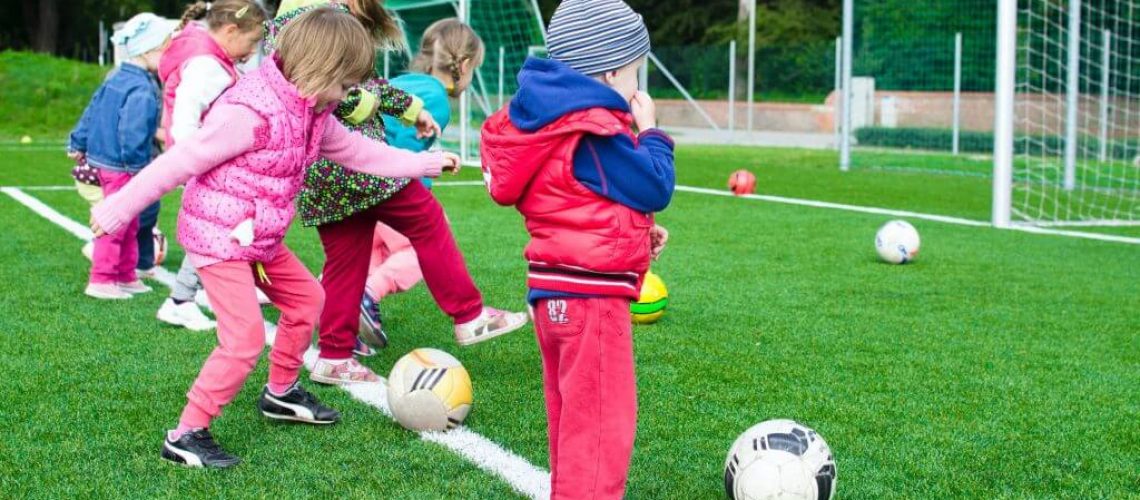The importance of how children learn through play
Learning through play
Play is one of the main ways in which children learn and develop. It helps to build self-worth by giving a child a sense of his or her own abilities and to feel good about themselves. Because it’s fun, children often become very absorbed in what they are doing.
At YogaBugs, we use imagination and adventures to teach children yoga and mindfulness; we engage them through play and they benefit from the exercise, without even realising they are exercising at all! Check out www.Youtube.com/yogabugs to take part in some YogaBugs adventures today.
Play is very important to a child’s development; it is an integral part of a child’s Early Years Foundation Stage and supports their learning journey too. Young children can develop many skills through the power of play. They may develop their language skills, emotions, creativity and social skills. Play helps to nurture imagination and give a child a sense of adventure. Through this, they can learn essential skills such as problem solving, working with others, sharing and much more.
In turn, this helps them develop the ability to concentrate. Providing children with a range of playthings will help them learn in a number of ways:
- Sand and water play can be an early introduction to science and maths, eg learning that water is fluid, not solid, and that it can be measured in different sized containers.
- Playing with dough or clay, drawing and painting pictures, dressing up, playing with dolls can encourage creativity, imagination and expression of feelings.
- Building blocks, jigsaws and shape sorters can help with recognising different shapes and sizes, putting things in order and developing logic.
- Playing ball games, dancing, running, climbing all help to develop body movement, strength, flexibility and co-ordination skills.
- Games help with turn taking, sharing and mixing with others.
- Singing, playing simple music instruments help to develop rhythm, listening and hearing.
It’s important that learning is fun at this age. It needs to be about doing things with them that they like. They might find unusual ways of doing things – for a toddler, building blocks aren’t just for making towers, and paint can be used without a brush! Show them how things work, but if they want to experiment, let them.
Children learn through all their senses through taste, touch, vision, hearing and smelling. They will watch those around them and copy language and behaviour.
Don’t push your child too hard. Children develop in their own ways and in their own time. Try not to compare them to other children. You can also encourage reading, by reading to and with them. Look at the pictures together; this will help younger children make sense of the words.
It’s also good to talk to them a lot, about everyday things while you are cooking or cleaning. This will give you a chance to teach them how things work and they will be able to ask you questions. Get ready for lots of “why’s?”
Setting the scene
Anyone who spends any amount of time with young children understands that providing them with opportunities for play provides so much more than a few minutes or hours of ‘fun’. Play also allows children to relax, let off steam, develop social skills such as concentration and co-operation, encourages the development of the imagination, develops motor skills and teaches self-expression.
Adults have a role within the play by making time and space available with the relevant resources. Think about creating play ideas that help support and extend learning and development.
Dramatic play aka role play
Dramatic play is essential to a child’s social (or emotional) development and can play a large part in their physical development too. Children make sense of the world in which they live by acting out situations before they happen and by copying what they see around them. Pretend (or dramatic) play contributes to a child’s emotional development as they learn to see life from a different viewpoint and allows them to ‘trial’ situations before they happen.
Most children are naturally imaginative and will happily talk away to someone on their toy phone or drive the sofa to the shops, and this creativity should be actively encouraged! This type of play also develops children’s imaginations which are closely linked to intellectual development.
Outdoor play and exploration
Encouraging your young child to explore outdoor play is extremely beneficial and necessary for their development. Outdoor play helps them to learn lots about the everchanging environment and gives them the opportunity to use their whole body and develop their gross motor skills. It can meet their multi-sensory needs and can give them a love for the outdoors. Whether it is messy play, creative or role play, it is an essential part of learning.
Social and emotional development
We look at ways to support your toddler’s development, helping them to be more resilient and emotionally aware through playing games and getting out and about for valuable social and learning experiences.
Relaxation Time
Teaching children about relaxation from an early age, helps with their development and coping strategies to deal with stress and anxiety as they get older. At YogaBugs, we incorporate visualisation techniques, relaxation techniques and breathing techniques to help children feel calm and relaxed.

